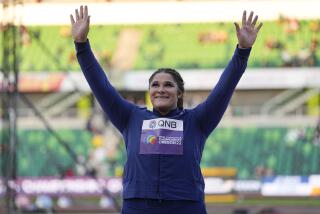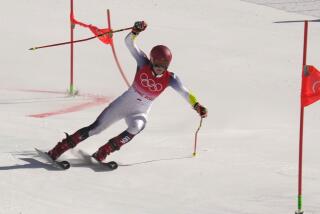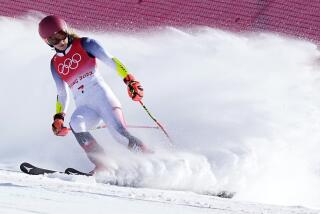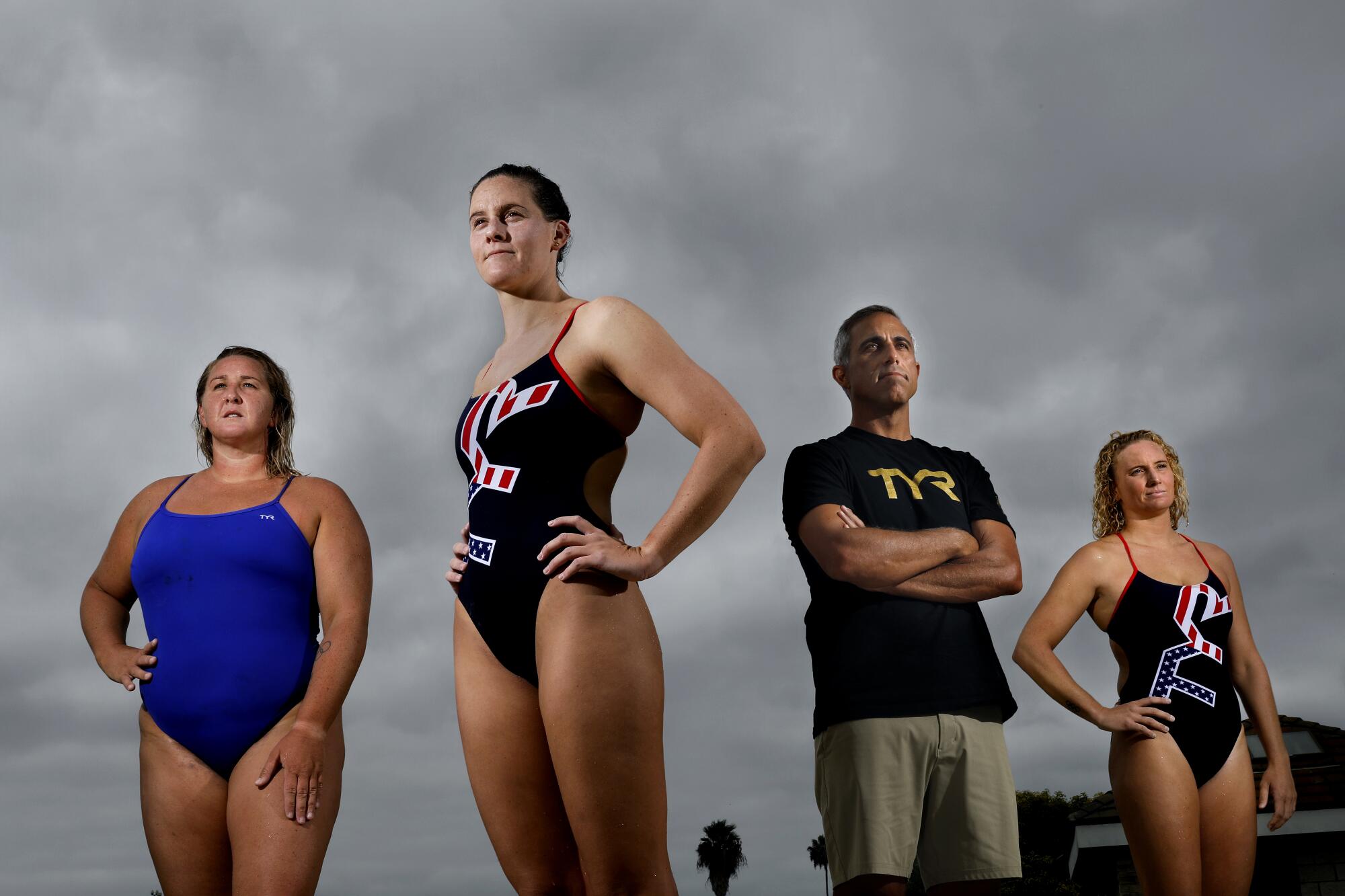
When Adam Krikorian wakes up Saturday, it will be just another day — the first on a well-earned vacation to visit family in Northern California.
If everything had gone right, Krikorian likely would have spent the day in Japan, coaching the U.S. women’s water polo team to a third consecutive Olympic title.
The U.S. was ranked No. 1 in the world and Krikorian’s date with destiny seemed secure. Pandemics don’t respect rankings, though, so when COVID-19 forced the postponement of the Tokyo Games, it was a crushing blow to athletes the world over. For Krikorian and his team, however, it was just another obstacle to be overcome.
“You can either use it as an excuse or make it part of your story,” he said. “This team has always made it a part of their story.”
The story of the last four years largely has been a tragedy. Since capturing the gold in the 2016 Olympics, team members have endured deaths, medical emergencies, freak accidents and a mass shooting.
Still, the team carries on.
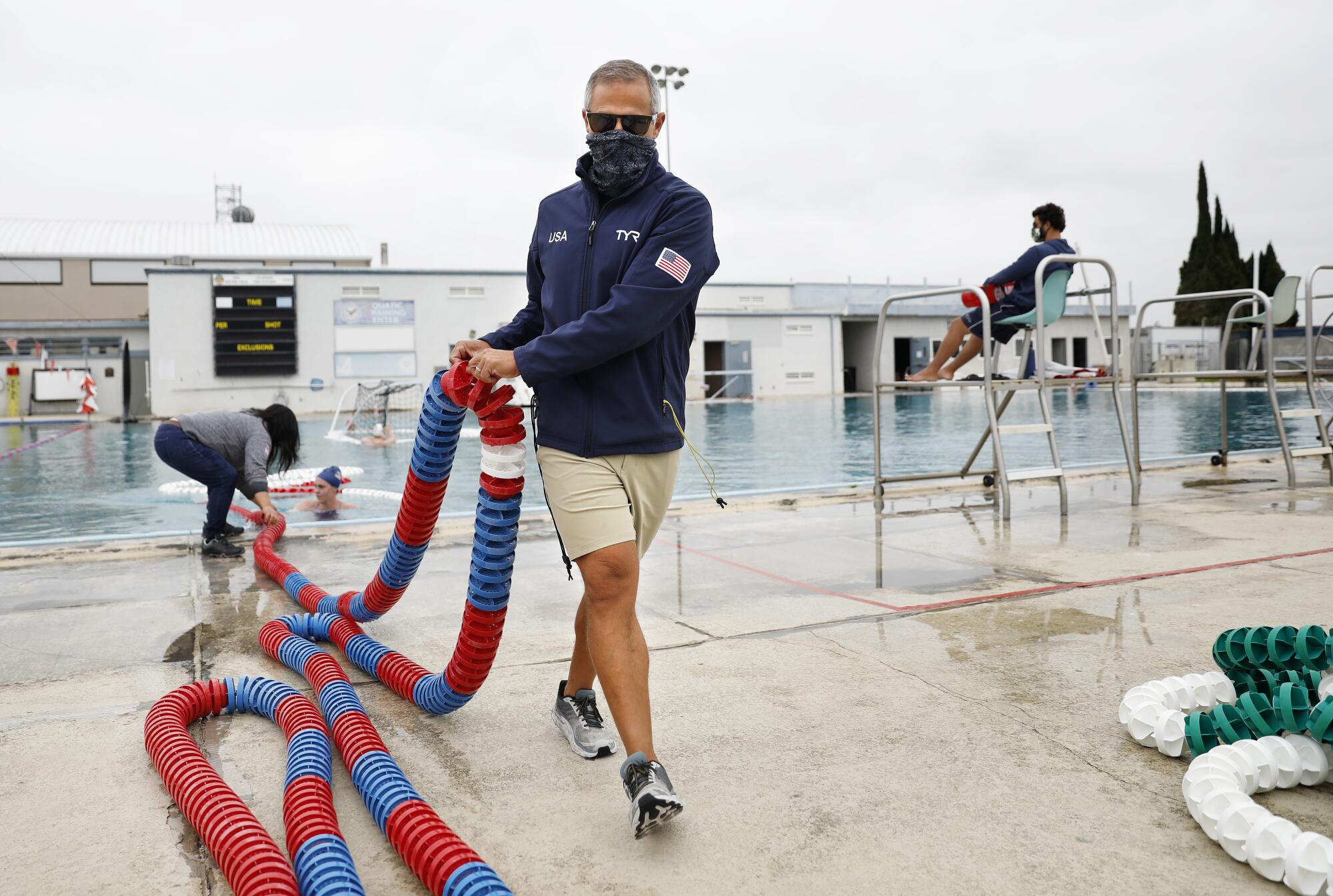
“The more adversity is thrown your way, it can either break you or it can make you stronger,” Krikorian said. “And thus far it’s certainly made us stronger. I don’t think this is going to be any different.”
If Tokyo was to be the high point of Krikorian’s coaching career, the low point came in Rio de Janeiro, on the eve of the last Summer Games.
The team had been in the Olympic village just two days when Krikorian’s phone began to ping with text messages and missed calls from his father, Gary, each more frantic than the last. It was just before midnight when he finally called his father back and learned his older brother Blake was dead of a heart attack at 48.
“I didn’t know what to do. There were a ton of thoughts going through your mind at that point,” he said, his voice cracking and his eyes watering at the memories. “Do I stay? This is my team that I’ve coached for four years, and this is the biggest moment of their athletic lives. So part of me was like, ‘I’m just going to stay.’
“And a big part of me was like, ‘This is meaningless. Like who gives a … about this? I want to go home and I don’t want to come back.’”
Krikorian spent the night walking the village, then called a team meeting for 7 that morning. By then the players had heard the news and had made the decision for their coach.
“We told him, ‘You’ve got to go. You should be home with your family,’“ Kaleigh Gilchrist said.
The trip from Brazil to California took 12 hours and Krikorian cried most of the way. Blake had been more than a brother. Almost seven years older, he was mentor and best friend, Krikorian’s idol and role model. He also was the person who taught Krikorian the difference between winning and losing, regularly crushing his kid brother in an Atari baseball video game, then taunting him so ruthlessly that Krikorian learned to hate defeat.
He channeled that competitiveness into water polo, leading UCLA to its first NCAA championship in 23 years as a player and 14 more titles as a coach. In 2009 he took over the women’s national team and guided it to an unmatched recorded of excellence, including three World Cup titles and the two Olympic golds.
That was the team he had left in Rio, so after a couple of days grieving with his family, Krikorian returned to Brazil. And if he had any doubts about that decision, they were eased on the flight back, one he shared with the families of many players.
“It was a reminder for me of, ‘Hey, these parents are going to watch their kids compete at the biggest stage. And I’m in charge of those kids,’” he said. “It was a good reminder that I have a responsibility and I can be a leader of how to deal with adversity.”
An hour before the team was to enter the pool for its first game, Peter Haberl, the team’s sports psychologist, whispered in Krikorian’s ear disturbing news. The mother of defender Melissa Seidemann had suffered a stroke and was in a Rio hospital.
“As soon as that information comes, it brings me back to Aug. 3 when my brother passed,” Krikorian said. “So I’m a wreck. And then I also feel this emotional connection. I recruited Melissa to come to UCLA. I know [the family] very, very well.”
The coach waited until after the game to tell Seidemann, but the news didn’t come as a shock.
“I kind of knew something wasn’t right,” she recounted earlier this year. “I can usually spot my family in the stands. I spotted my sisters, but not my parents.”
Krikorian buried his personal sorrow in preparing his team for each game. Seidemann buried hers in the pool, playing in all six U.S. wins and scoring three goals in between long commutes to her mother’s bedside.
After the gold medal game, coach and player, exhausted both physically and emotionally, broke down. They hadn’t let the team down and now the team returned the favor.
“I remember hugging Adam afterward and saying that Blake would be proud,” Gilchrist said. “We were all crying at that point.”
In water polo, coaches don’t share in the awards so after the medal ceremony the players stepped off the podium, filed over to Krikorian and, one by one, draped 13 golds around his neck as the coach dabbed at the tears in his eyes.
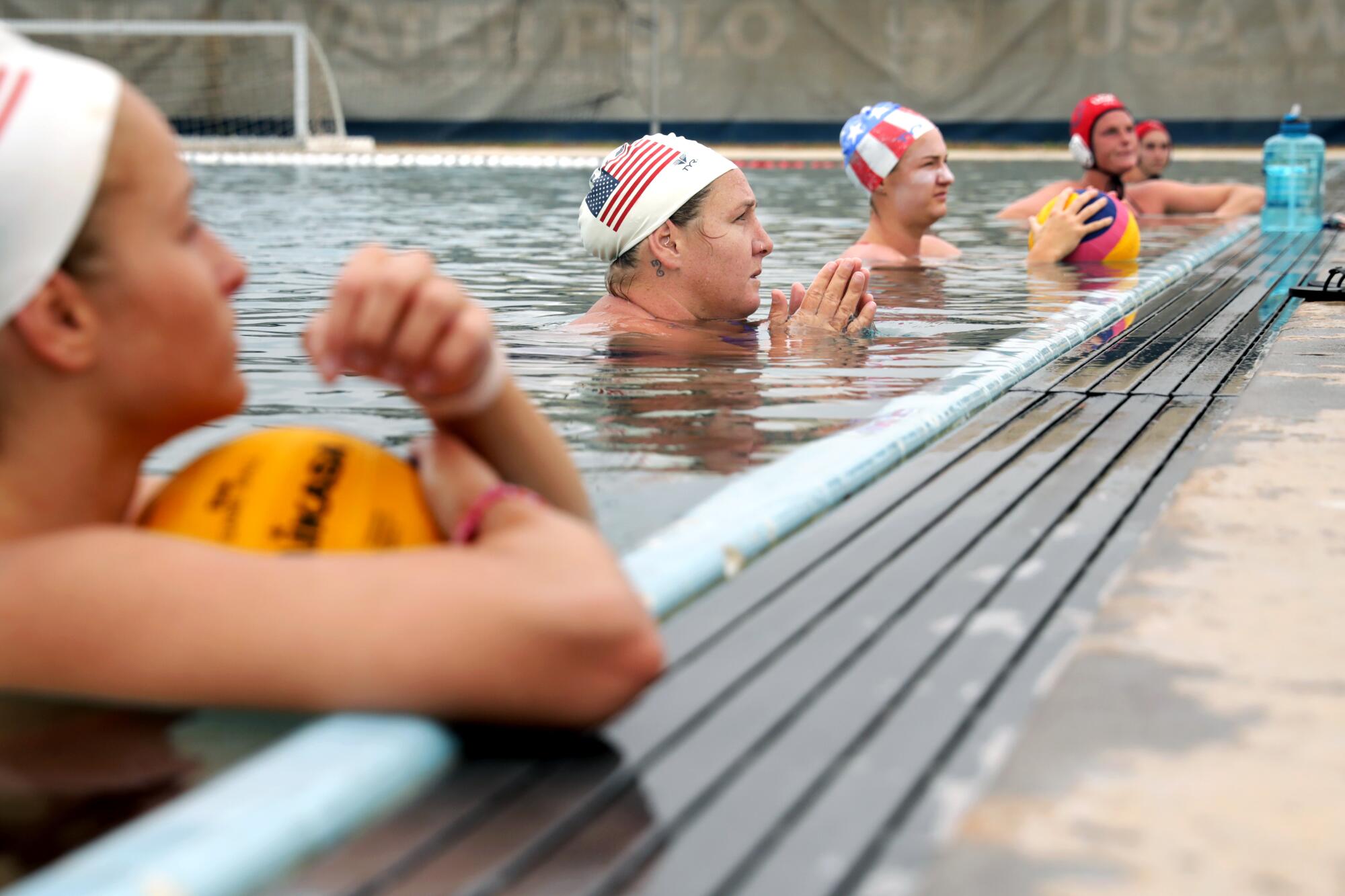
::
Seidemann’s mother, Bobbie, suffered a second stroke and spent the remainder of 2016 in the hospital, returning from Brazil in a wheelchair she’ll need for life. But by fall 2017, with the pain and triumph of the 2016 Olympics receding, Seidemann joined friends and teammates on a short trip to Las Vegas.
Anything to get out of the pool for a few days.
The draw was a country music festival. Late in the festival’s final night, a man opened fired on the crowd, killing 59 and wounding more than 400. It remains the deadliest mass shooting in American history.
Seidemann and Sami Hill, another 2016 Olympian, had left the outdoor venue about 30 minutes earlier, a couple of hours after teammate Maddie Musselman. Left behind was teammate Alys Williams, who had persuaded her boyfriend, Cody Moore, to stay for country star Jason Aldean, who was onstage when the shooting began.
“At the beginning I honestly had no clue what was happening,” Williams recalled. “It sounded like fireworks. It was weird. Then all of a sudden people were screaming and telling us to get down.”
Musselman was on a plane by then; when she landed, her phone was full of text messages and voicemails from friends checking on her safety.
“I had no idea what was happening,” she said. “I actually haven’t processed it in terms of like ‘wow, I was super lucky.’ I think everything happens for a reason, you know? I could have been there.”
Seidemann watched the shooting unfold on TV a couple of blocks away.
“I felt helpless,” she said. “Oh my God, my people are there and I want to help them. But there was nothing we could do.”
Back at the concert, Williams and Moore, convinced by the hail of gunfire there were multiple shooters, ignored the orders of an off-duty policeman to stay down, instead jumping up and running as bullets kicked up gravel all around them.
Williams heard someone scream that they had been hit, but she didn’t look back. “I knew what was happening. I wasn’t curious,” she said. And if she saw any victims, she’s blocked that out.
When they got to the nearby Tropicana, Williams realized she had lost her phone and tried to reach her parents on Moore’s. The call still was ringing when the crowd in the casino panicked, believing there was a shooter there too. Williams and Moore took off running again, this time for the MGM Grand across the street, where they hopped on an elevator and zoomed to a top floor, then sat shaking in a hallway.
It was nearly 5 in the morning when Seidemann and Hill picked them and drove them to the Airbnb they had rented.
Later that day, Seidemann did what teammates do, skipping her flight to Orange County so she could drive her teammate home to Huntington Beach instead.
Williams says she still hasn’t fully processed that evening. “There’s definitely some guilt [about] me leaving,” she said. “Looking back, I wonder if I could have helped more people if I would have stayed.”
Why did she run? Why did she survive? She’s obsessed over both questions but has come to the conclusion that she doesn’t get to know the answer. Her job is simply to keep moving forward.
“I have my own beliefs and I definitely have a piece of me where it’s like I was meant to be there. And I was meant to get out of there. Now what do I do with my life?”
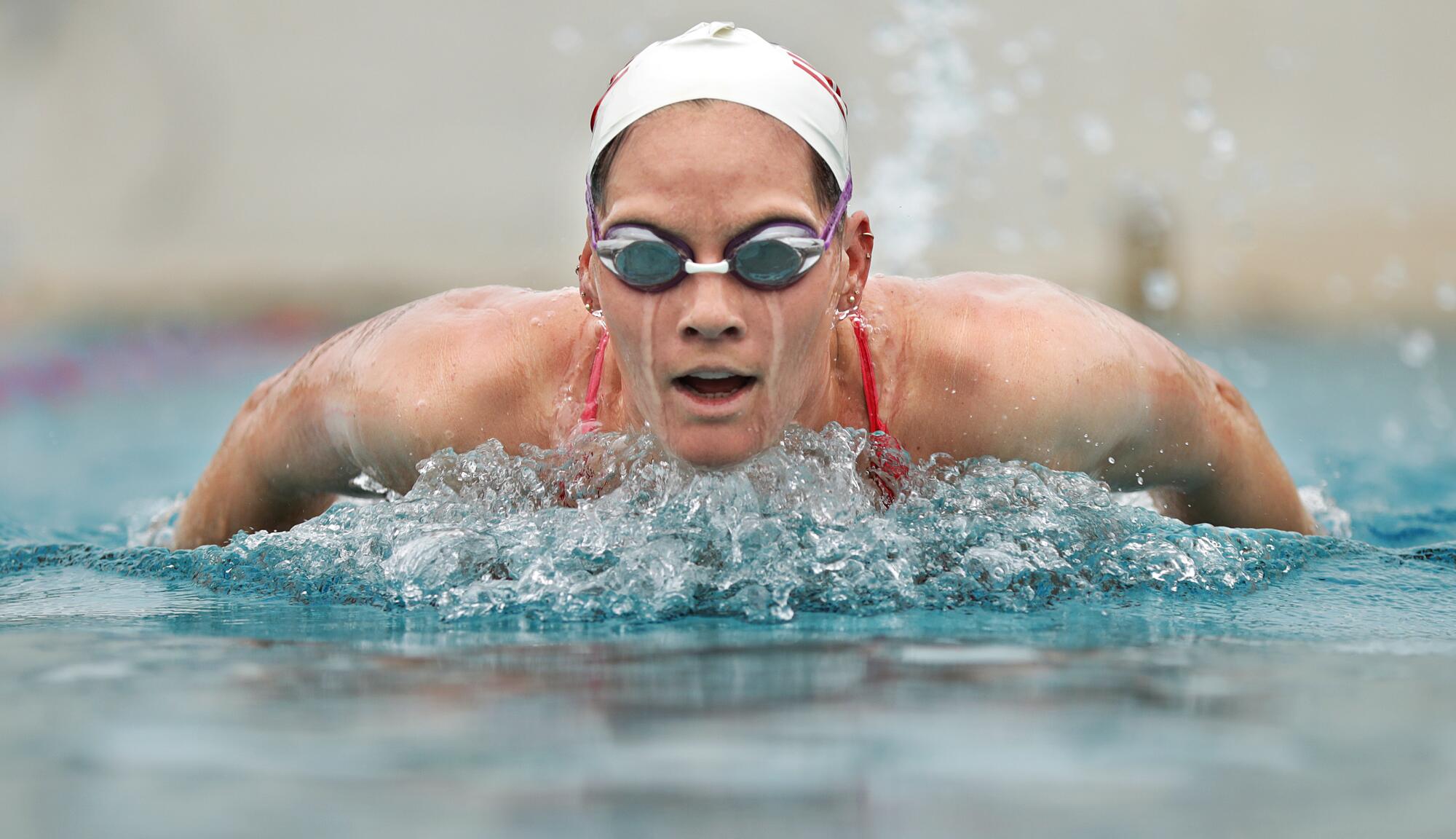
::
Las Vegas wasn’t the first time Williams dodged disaster. Nor would it be the last.
A year earlier she had been traveling through Belgium to the Olympic qualifying tournament in the Netherlands but had shown up late and missed her train. If she had been on time, she said, she would have arrived at the Maalbeek metro station in Brussels just as a terrorist ignited a suicide bomb, killing 20 and injuring more than 100.
“I just escaped,” she said. “That was random.”
In July 2019, Williams left a Seoul nightclub with some teammates 45 minutes before a balcony collapsed, killing two people and injuring 17 others. Gilchrist was one of those 17.
She had played more than 20 minutes for the U.S. in the gold medal game at the FINA World Championships that night and didn’t want to let the celebration end. So while teammates began returning to their hotel, Gilchrist stayed behind. She was with teammate Paige Hauschild and Johnny Hooper, a member of the U.S. men’s team, when the second-floor balcony they were standing on gave way.
Hauschild and Hooper sustained minor injuries but there were deep lacerations to Gilchrist’s left leg. Chris Bates, the sports medicine manager for the national team, used a belt to make a tourniquet and Hannes Daube, another men’s player, carried her to the street to wait for an ambulance.
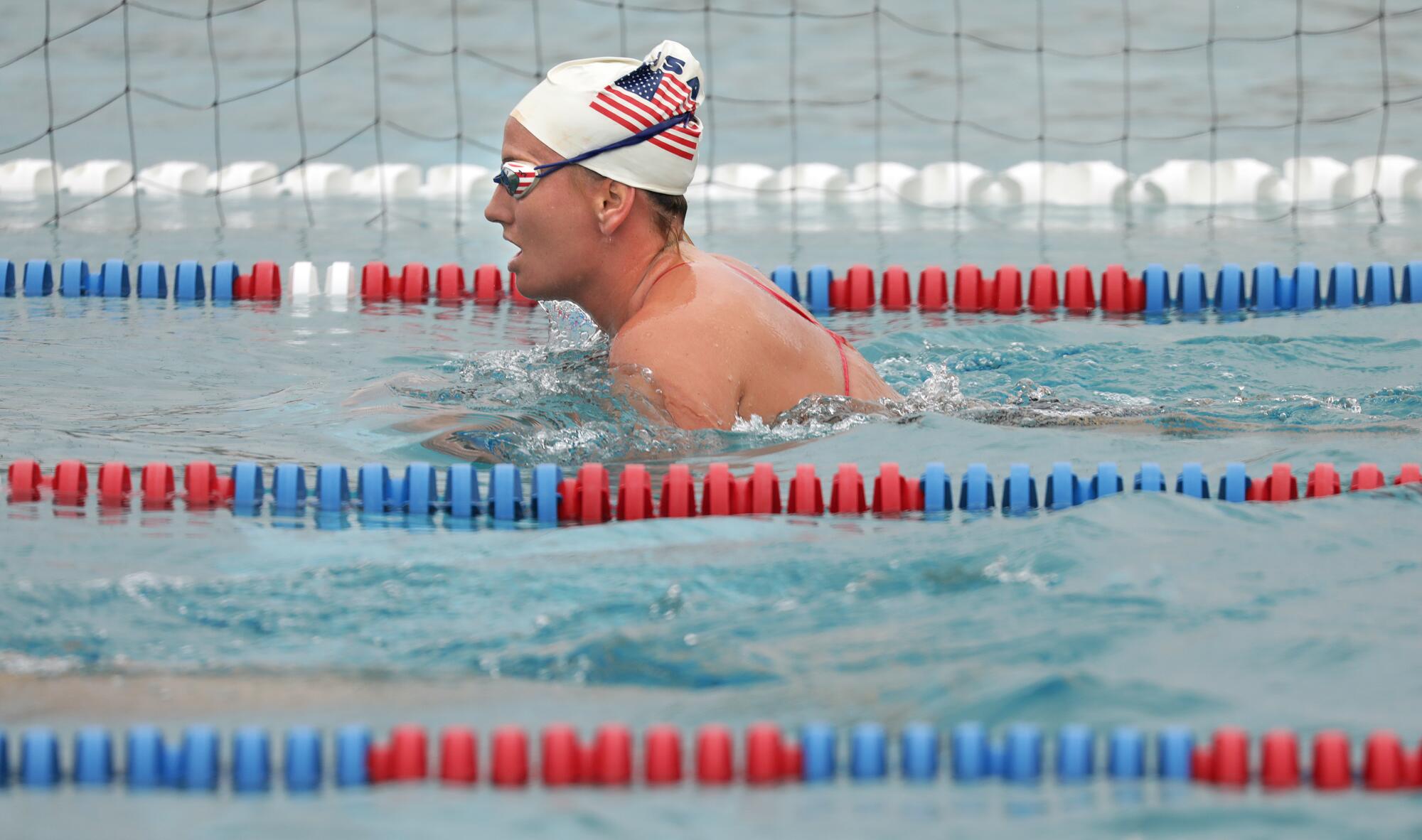
“I was laying on the curb kind of fading in and out,” she remembered. “That was the first thought, just making it to the hospital and just trying to stay present with a good attitude not to scare the ones that were around me.”
On the way to the hospital she called her family on FaceTime and lied, saying she was OK. The truth was she didn’t know because she refused to look at her bloody leg.
A day later, when she woke from surgery, doctors showed her pictures of her wounds, explaining in broken English that it had taken more than 100 stitches to close them. If the lacerations had been just millimeters deeper, she could have lost the use of her left foot.
Gilchrist faced months of painful and mind-numbing rehab if she hoped to compete in the 2020 Games.
Japan had a special allure; her father, Sandy Gilchrist, swam for Canada in the 1964 Olympics in Tokyo. To make sure she got there too, she reached out to a Newport Beach neighbor who had once traveled a similar road in rehab.
“I actually met Kobe Bryant a few years back. He kind of became a big mentor after South Korea happened,” Gilchrist said. “We just continued to chat. Our trainer named my recovery the Mamba Mission.”
The mission isn’t complete but Gilchrist, cheered on by Bryant, returned to the pool in December. A month later the NBA legend, his daughter Gianna and seven others died in a helicopter crash in Calabasas.
“That was definitely a tough week,” Gilchrist said. “It clearly brought up emotions from South Korea. Obviously he was such an inspiration and fixture in the recovery process too.”
Krikorian had suspended practices because of COVID-19 when the International Olympic Committee announced in March that the Summer Games would be postponed a year.
“In a strange way,” Krikorian said, “you just kind of look at it as another challenge. We talk all the time about things are going to be thrown at us that we just don’t know what’s coming. And our ability to persevere in those tough times really determines whether we’re going to have success.”
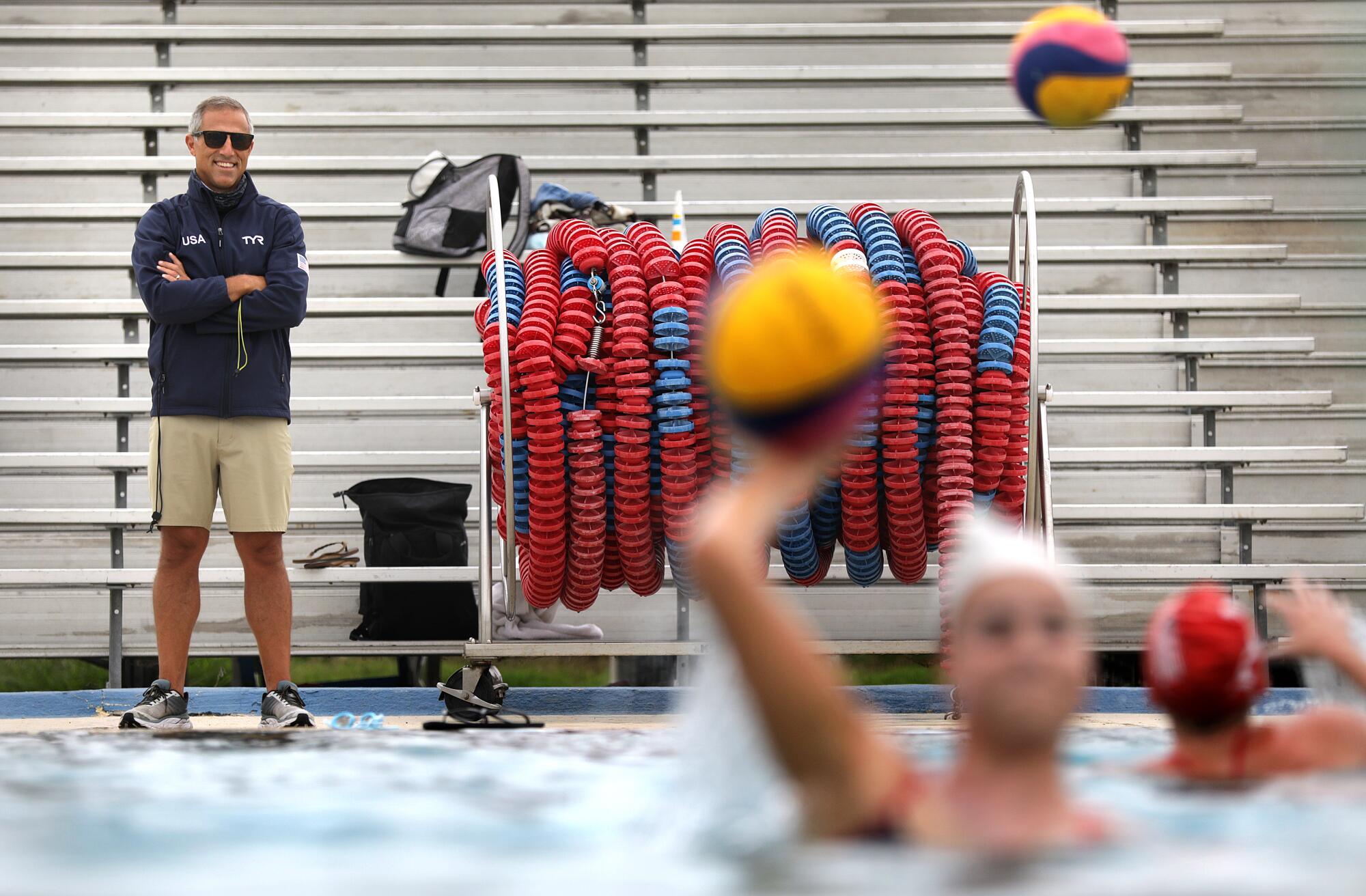
That doesn’t make those decisions any easier.
Seidemann will be 31 if the Tokyo Games open next July. Does she want to endure another year of grueling training to go for a third gold medal? If she does, her mother will have to watch her on television.
Sisters Makenzie Fischer, 23, and Aria Fischer, 21, put off their studies at Stanford to train for Tokyo. Do they want to extend those sabbaticals another year?
On the plus side, Gilchrist will have another year to continue her rehab and Williams, 26, is going ahead with her plans to marry Moore, who was by her side at the Las Vegas shooting, in November.
Makenzie Fischer — who comforted Krikorian and Seidemann in Rio; who backed out of the Las Vegas trip at the last minute; who left the nightclub in South Korea shortly before the balcony collapse — said she doesn’t believe there’s a black cloud following the team. She insists all those incidents have made her and her teammates stronger and brought them closer together.
If they make it to Tokyo next summer and reach the gold-medal game and go into the fourth quarter trailing? They’ve faced bigger challenges than that.
And if they lose? Well, it’s only a game.
More to Read
Get our high school sports newsletter
Prep Rally is devoted to the SoCal high school sports experience, bringing you scores, stories and a behind-the-scenes look at what makes prep sports so popular.
You may occasionally receive promotional content from the Los Angeles Times.

